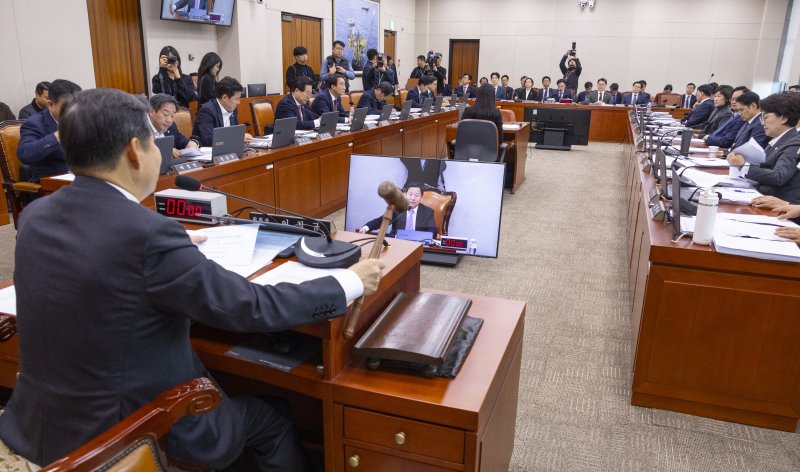Will the 'K-Steel Act' to Support the Steel Industry Pass the National Assembly Plenary Session on the 27th?
- Input
- 2025-11-23 13:54:43
- Updated
- 2025-11-23 13:54:43

The K-Steel Act (Special Act on Strengthening the Competitiveness of the Steel Industry and Transition to Green Steel Technology), designed to support the steel industry facing challenges such as the United States’ 50% high tariffs and a global supply glut, is likely to pass the National Assembly of the Republic of Korea’s plenary session as early as the 27th. Although a Korea-U.S. tariff agreement was reached, steel products are still subject to the 50% tariff, and major economies such as the European Union are raising barriers, increasing difficulties for domestic companies. In response, the National Assembly has moved to provide legislative support. While there is bipartisan agreement on passing the K-Steel Act, ongoing conflicts over other contentious bills could become a last-minute variable.
According to political sources on the 23rd, the Trade, Industry, Energy, SMEs and Startups Committee of the National Assembly of the Republic of Korea approved the K-Steel Act during a plenary session on the 21st. The bill passed the standing committee three months after it was first introduced in August.
The K-Steel Act includes the establishment of a Special Committee for Strengthening Steel Industry Competitiveness chaired by the President, support for the development and investment in green steel technology through subsidies, loans, tax reductions, and production cost assistance, as well as the creation of green steel zones and regulatory innovation. It also strengthens rules of origin, restricts the import and distribution of non-compliant steel products, grants the government authority to directly respond to unfair trade practices, and introduces systematic measures to foster related industries for securing competitiveness in eco-friendly steel materials. Furthermore, the act enables the government to actively provide tax and financial support to guide business restructuring and supply-demand adjustments when voluntary restructuring by steel companies is not feasible, and to secure new demand through such support.
Although 106 lawmakers from both parties jointly proposed the bill in August, progress had been slow due to political strife. However, after passing the bill review subcommittee on the 19th and being approved at the plenary session on the 21st, it is now highly likely to be submitted to the Legislation and Judiciary Committee this week and processed at the plenary session on the 27th.
There is no disagreement between the ruling and opposition parties regarding the passage of the K-Steel Act. Both party leaders have pledged to expedite its passage as a party platform. Kim Byung-kee, floor leader of the Democratic Party of Korea (DPK), stated at a policy coordination meeting on the 13th that every effort would be made to reach bipartisan agreement on the K-Steel Act, which has drawn significant public and industry attention, by the plenary session on the 27th. Jang Dong-hyuk, leader of the People Power Party, also promised the bill’s passage at the National Assembly during a visit to the Ulsan Chamber of Commerce and Industry on the 22nd.
The Petrochemical Industry Support Act (Special Act on Strengthening the Competitiveness and Support of the Petrochemical Industry) is also likely to be submitted to the plenary session on the 27th. This bill focuses on financial and fiscal support for business restructuring, regulatory exemptions for the petrochemical industry, and the training and education of specialized personnel. However, ongoing confrontation between the parties over the prosecution’s decision to drop the appeal in the Daejang-dong development scandal remains a variable.
cjk@fnnews.com Choi Jong-geun Reporter